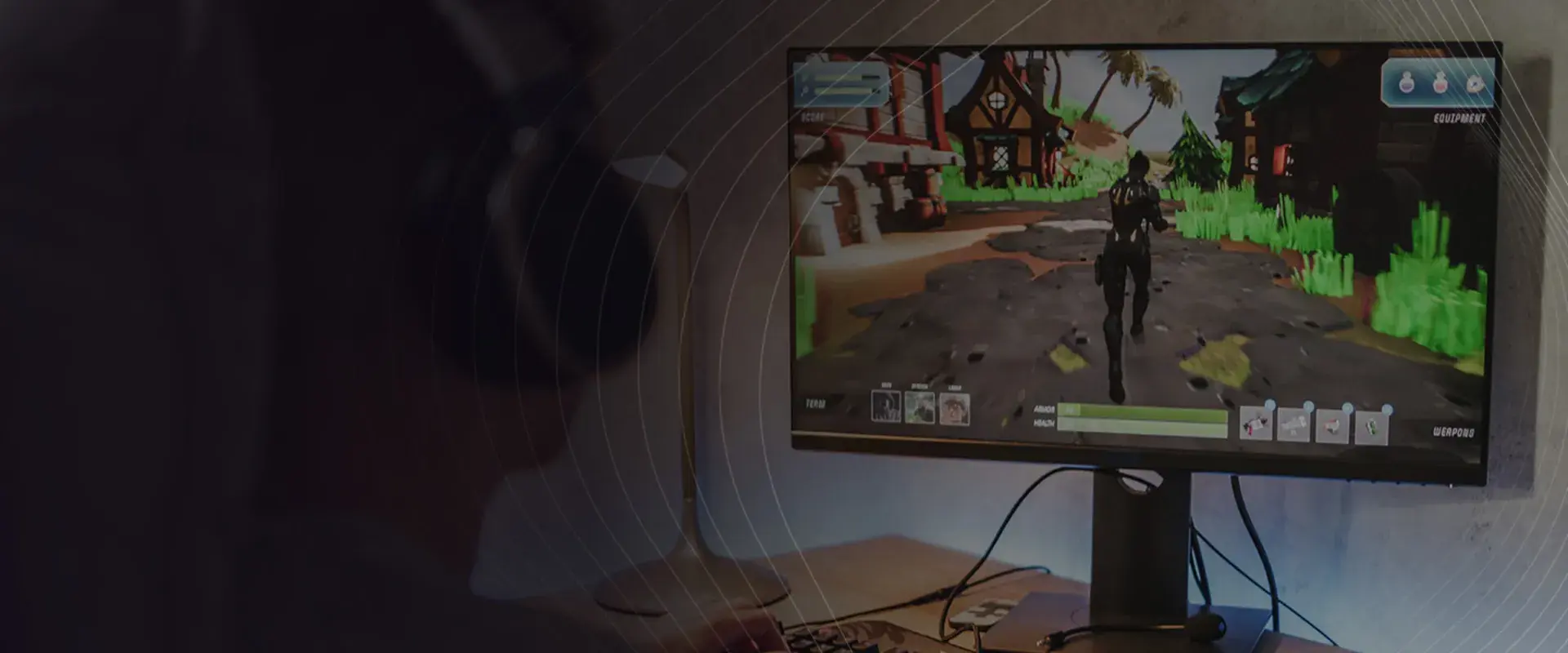The Metaverse is a hot topic at the moment. Everyone seems to be talking about it, and some are even planning to invest in it. Just in case it turns out to be the future of the Internet, Mark Zuckerberg of Facebook, Tim Sweeney of Epic Games/Fortnite, and even Jay-Z (!) want their claim to fame. But what is the Metaverse exactly and how will it be used? What will be the legal implications once launched and will the whole thing be safe at all? Read on to find out!
Table of Contents
What is the Metaverse?
Meta-what?
Why is the Metaverse a hot topic right now?
How different will the Metaverse be from traditional online experiences?
Metaverse = virtual utopia or…?
Legal implications of the Metaverse
How safe will the Metaverse be?
Irdeto will be ready!
What is the Metaverse?
Everyone seems to be talking about it, but nobody really knows what it’s going to be exactly. At present it’s more of a concept than an actual thing. And as such it has no single, widely accepted definition — instead its characterization tends to be rather vague and ranges from VR chat platforms to Minecraft, with some people imagining it as the World of Warcraft on steroids.

Metaverse in Google Trends
In general, however, it’s expected that the Metaverse will be the next incarnation of the Internet, an immersive virtual 3D world connecting (or rather converging?) all sorts of digital environments. It will blend applied game mechanics, Massive Interactive Live Events (MILEs), blockchain-enabled digital goods and virtual commerce. It will be used for all kinds of activities: working, playing, learning, shopping, hanging out, live events — all of it with human interaction at the core.
The Metaverse can then be thought of as a new decentralized marketing ecosystem, characterized as social, live and persistent, with a lot of user-generated content. It will also be easy to join and contribute to for hardware-agnostic users.
Meta-what?
The name metaverse originates from a science fiction novel Snow Crash by Neal Stephenson (1992), but a similar concept was created earlier by other dystopian science fiction authors, namely Philip K. Dick and William Gibson. Meta is Greek for beyond, and the stem verse comes from the word universe. But let’s not forget that the science fiction stories where the concept of a metaverse was featured were written as a warning or a satire!
There have already been some attempts to turn this concept into reality. When thinking about the Metaverse, Eve Online, launched in 2003, comes to mind especially with its play-to-earn model, or more recently, GTA and Red Dead Online GTA and Red Dead Online. The Metaverse will simply take these and similar offerings into a different dimension. Yet with the concept being so ambitious, we can’t expect it to be built overnight by a single company. Mark Zuckerberg has promised to collaborate on it with other enterprises, and it is estimated to take 10 to 15 years to build it.
Why is the Metaverse a hot topic right now?
Why is there so much talk about the Metaverse today? What is so special about the times we live in? Well, it seems that we are finally technologically ripe for creating this new incarnation of the Internet. With inventions such as Augmented Reality (AR) and The Oculus Quest 2, the VR technology and tools and apps surrounding it (including 5G, bitcoin, non-fungible tokens – NFT) are finally advanced enough to attempt creating the Metaverse. For example, the unique tokenized digital asset technology is already on the rise with NFT transactions reaching more than $10.7bn in Q3 2021, up more than eight-fold from the previous quarter.
And it’s not just technology that is ripe. We’re also observing a shift in user behavior. Immersive online worlds have been on the rise. Minecraft’s user base grew from 91 million in 2019 to 131 million in 2020. Roblox’s revenue was up 140% year-on-year in the first quarter of 2021. It seems that the Metaverse will be the future Internet for the youngest generations. Its creation will coincide with the time they become older and have money to spend. A recent survey shows that digital native Gen Z generally doesn’t distinguish between virtual and offline experiences. By 2025 Gen Z will make up 25% of Asia-Pacific’s (APAC’s) population, and combined with the millennials, they will compose half of APAC consumers. Companies planning to invest in the Metaverse must surely take into account the combined spending power that these two demographics will have.
How different will the Metaverse be from traditional online experiences?
First, the Metaverse is expected to far more immersive, with the VR interface as the main method of experiencing it. So, no more mobile devices as we know them, no monitors, keyboards or mouses etc. A single VR headset will be enough to enter this new universe.
Second, the Metaverse will bring a shift from usernames or login IDs to enhanced digital avatars. These will be extensions of real people and will combine all their different information that is today dispersed across a number of user accounts across platforms – including our bank accounts.
Third, the Metaverse will bring a shift from digital goods being purchased within a closed virtual environment to digital goods that are portable throughout open virtual environments. So, you will be able to buy e.g., an avatar from a particular company in the Metaverse, and use it everywhere.
Metaverse = virtual utopia or…?
However, if you watch the conversation about the Metaverse closely, you may have the impression that the discussion revolves around investors, brands and creators, and it’s the money involved in it that sparks emotions. Initially, it seems that there is not enough focus on the participants or users of the Metaverse. Yet for any interactive experience to succeed, it must be built around users. Without engagement from them, there will not be long-term success.
There’s also a different sort of criticism – for some the Metaverse is simply an absurd idea. Those critics see it as a more elaborate and cynical incarnation of the already “annoying Internet,” with all the well-known frustrations of online shopping, aggressive advertising and mind-numbing social media. They see it as a danger to the wider society, with digital consumerism replacing the physical one and bringing further consolidation of digital giants (“megascale Amazon”) who will end up controlling shopping, entertainment, discourse and social interaction. Warnings such as these encourage us to think about the Metaverse more skeptically.
Legal implications of the Metaverse
Leaving these concerns aside for a while, let’s examine the mere legal implications of the Metaverse. Its creation and existence will surely require processing of enormous amounts of personal data, which will be subject to many of the same increasingly stringent privacy and data processing rules as social networks. This may be a heavy burden, especially for smaller companies willing to contribute to the Metaverse.
Also, intellectual property disputes will become increasingly prominent due to the ambiguity of ownership in the Metaverse. Who truly owns in-game content or items: publishers or users? Companies will need a strategy for dealing with their intellectual property in the digital world. They will increasingly need to monitor the use of their brands for infringements and decide to what extent they will give permission for their brands to be used by third parties. There will be a lot for lawyers to work on once this thing is set in motion!
How safe will the Metaverse be?
Which finally takes us to the most interesting question: how safe will this new thing be? The interconnection between the Metaverse economy and offline economy will increase the number of attempts at theft and fraud. Stakes will be much higher than they are now, so for people to be willing to participate in the Metaverse, they’ll need to be 100% sure it is safe.
One of the key elements of the Metaverse that will need protecting will be digital identity. As mentioned, it will be much more than your today’s Google of Facebook account. This will be your entire digital life, not only with your unique online (and offline) identity, but also with your money and sensitive data. Protecting it against theft will be a critical factor for the entire Metaverse endeavor to be successful. And so will be ensuring that the Metaverse users cannot fake their identity.
As a result, companies will not only be Metaverse’s enablers, participants, or celebrants, but they will also have to assume the role of authenticators. They will have to find a way of stopping cheating and fraud in the Metaverse, so that its users are happy. There are real trade-offs between making an experience safe, balancing privacy, and keeping it fun for everybody. Sure, blockchain and NFT will be used as guarantees of authenticity in the Metaverse, but there will also be a need for more conventional security solutions as well, e.g., protecting against hacking or tampering, otherwise all other security measures will collapse.
Then there is also the issue of tampering with the Metaverse components and piracy. We have already been experiencing a lot of hacking into different gaming and entertainment outlets, so can only expect it to increase in the Metaverse.
And what will actually happen to the cheaters? Will they be sent to a sub-universe where they’re free to cheat as cheating is accepted as part of the rules? Or will there be virtual prisons for them to serve time in for their misdeeds? And since we’ve mentioned the penitentiary system: how will the Metaverse be policed? How will its users be monitored and punished for breaking the law, hate speech etc.? By private companies themselves or by some governmental cyber-police?
Irdeto will be ready!
Here at Irdeto, we know a thing or two when it comes to cybersecurity. We’ve been doing it for decades. True, we don’t really know what to expect from the Metaverse, as all the above questions make us realize. But there is one thing we know for sure: whatever the Metaverse will end up being, we’ll be ready to make it a safe(r) place!











/Images/Module%20-%20footer/spiral.svg)
